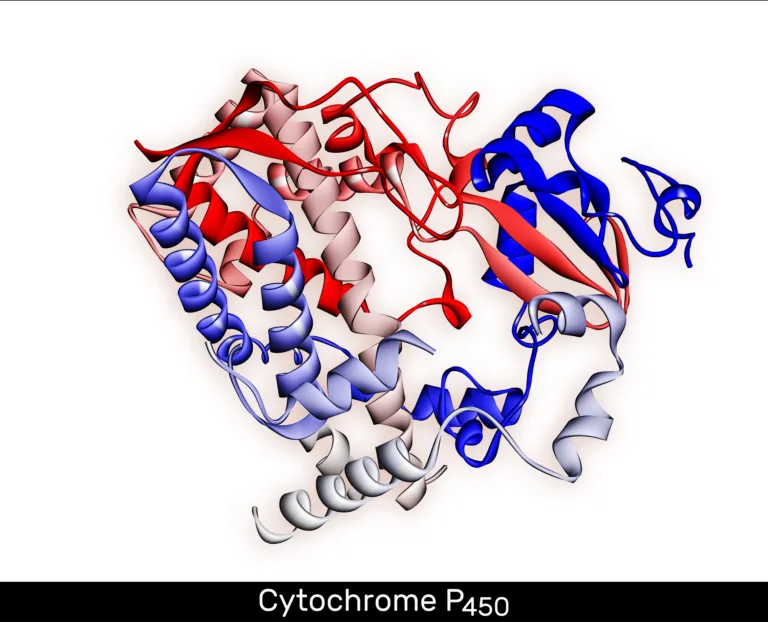Pharmacogenomics (PGx) is rapidly emerging as a practical tool for employer-sponsored health plans. By tailoring prescriptions to an individual’s genetic profile, PGx programs can help reduce avoidable costs, minimize adverse drug events, and move members onto effective therapies sooner. This is especially relevant in the United States, where medication-related problems account for an estimated $528 billion annually in wasted spending, side effects, and treatment failures, and where adverse drug reactions are among the leading causes of hospitalizations.
For Third-Party Administrators (TPAs), brokers, and self-funded employers, PGx programs represent a new way to improve outcomes while controlling costs. TPAs already manage plan operations and claims for millions of covered lives, and brokers advise employers on benefits strategies that balance affordability with member health. Both groups—alongside employer benefits leaders—are now evaluating PGx service platforms to determine which solutions align with their funding models, clinical goals, and data requirements.
The vendors profiled below deliver a mix of services, from laboratory testing to clinical decision support and pharmacist consultation. Each profile explains what the company does, why employers or TPAs might choose them, and what to verify during due diligence. You’ll also find typical use cases to guide selection and help you align the right PGx solution with your population health priorities.
1. Cygenex
What the company does: Cygenex delivers a benefits-ready pharmacogenomics program that works through brokers, TPAs, stop-loss partners, and employer coalitions. The company combines PGx testing with medication risk analytics and plan-level reporting.
Why employers choose it: Cygenex understands distribution in the benefits world. They align the program with plan funding, eligibility feeds, and communication cadences. This makes it easier to position PGx with stop-loss partners and captive managers.
Good fit for: Self-funded employers and captives that want a turnkey vendor fluent in the language of avoided claims and member engagement.
What to verify: Engagement strategy, the path from test results to prescriber action, and dashboards that connect interventions to measurable outcomes.
2. Telos PGx
What the company does: Telos PGx operates as a CLIA and COLA accredited lab focused on pharmacogenetic testing. It offers straightforward ordering, defined gene panels, and provider-friendly reports.
Why employers choose it: A lab-first model keeps operations simple. Plans can plug Telos into existing care management or PBM analytics to identify high-risk members and move quickly.
Good fit for: Groups that want a reliable testing backbone and clear turnaround times, with the option to add decision support or consults from other partners.
What to verify: Panel coverage against your top drug classes, turnaround time, physician outreach protocols, and employer-level summaries.
3. Geneius Health (My Toolbox Genomics)
What the company does: Geneius Health runs a genetics brand used by practitioners and wellness programs under the name My Toolbox Genomics. It provides DNA and epigenetic testing with education and engagement tools. PGx can be included as part of a broader genetics journey.
Why employers choose it: Employee participation is often the hardest part. Geneius offers an approachable on-ramp that builds literacy and trust, then channels members to clinical next steps.
Good fit for: Employers that want a culture-building layer around genetics, or that plan to roll out PGx alongside broader wellness initiatives.
What to verify: The exact PGx scope, how results transfer to licensed clinicians, and how recommendations return to prescribers.
4. Kohif Pharmagenix
What the company does: Kohif Pharmagenix combines pharmacogenetic testing with clinical decision support. The platform checks drug–gene, drug–drug, drug–herb, and drug–disease interactions. It surfaces treatment options that take a member’s genetics and full regimen into account.
Why employers choose it: Reports go beyond genotype. Clinicians see actionable guidance that covers real-world complexity. That increases the chance of a prescriber acting on the insight.
Good fit for: Populations with polypharmacy, pain management, cardiology, or behavioral health needs where interactions and side effects drive claims.
What to verify: Source labs and accreditations, governance for clinical rules, documentation sent to prescribers, and follow-up protocols.
5. UGenome AI
What the company does: UGenome AI delivers AI-assisted PGx decision support. The company can analyze existing genomic data in some settings and generate therapy guidance without new wet-lab testing. It also partners with labs and research networks to expand access.
Why employers choose it: Some plans or provider groups already hold genomic information from prior testing. UGenome AI can turn that data into medication guidance and speed time to value.
Good fit for: Employers connected to health systems, research affiliates, or labs with banked data. Also useful for plans that want decision support first, then testing as needed.
What to verify: Data prerequisites, validation studies, clinical oversight, and how recommendations appear inside provider workflows.
6. RX Optimization
What the company does: RX Optimization is a pharmacist-led service that embeds PGx inside comprehensive medication management. Members receive counseling and prescribers receive targeted recommendations that combine genetics with drug safety checks.
Why employers choose it: The model focuses on behavior change and member understanding. Pharmacists meet members where they are, then work with prescribers to optimize therapy.
Good fit for: Populations with complex regimens, persistent side effects, or poor adherence. Also strong for employers that value white-glove clinical support.
What to verify: Service-level agreements for consults, documentation standards, referral pathways, and measurable impact on medication changes.
7. InformedDNA
What the company does: InformedDNA offers precision health programs for payers and employers. The company integrated Coriell Life Sciences’ population medication safety program, known as Corigen. The combined offering supports large-scale PGx rollouts with pharmacist review and outcomes tracking.
Why employers choose it: The platform is designed for size and governance. It can support complex eligibility structures, plan analytics, and multi-site provider networks.
Good fit for: Large self-funded employers, public plans, and coalitions that need consistent rules, standardized reporting, and validated workflows.
What to verify: Current product names, data-sharing agreements with PBMs, and the cadence of outcomes reporting.
8. OneOme RightMed
What the company does: OneOme provides PGx testing and the RightMed platform for population programs. The solution includes curated panels, clinical interpretation, and tools for prescribers.
Why employers choose it: OneOme brings mature clinical curation and a defined product for groups. It is well suited to scaled use across multiple conditions.
Good fit for: Plans that want a balanced model with strong laboratory operations, clear reports, and provider enablement.
What to verify: Integration with PBM data, support for prior authorization workflows, and measures that tie interventions to utilization.
9. GeneSight by Myriad Genetics
What the company does: GeneSight offers pharmacogenomic testing focused on mental health. Reports help clinicians select or adjust antidepressants, antipsychotics, and related therapies based on metabolism and interaction profiles.
Why employers choose it: Behavioral health is a major cost driver. Clinicians often know GeneSight, which can improve adoption and follow-through.
Good fit for: Employers with high antidepressant use, collaborative care models, or network psychiatrists who value PGx in practice.
What to verify: Coverage options, prescriber onboarding, and monitoring of medication changes and adherence.
10. YouScript
What the company does: YouScript is a software platform for medication decision support. It evaluates drug–gene and drug–drug–gene interactions and produces risk analysis at the population level. It integrates with clinical systems and accepts data from multiple labs.
Why employers choose it: Plans can bring their preferred lab partner and still give prescribers real-time guidance. YouScript can also analyze risk across the population to target interventions.
Good fit for: Employers with on-site clinics or health-system partners. Also useful for TPAs that want a software layer to standardize prescribing guidance.
What to verify: EHR and PBM integrations, accepted lab file formats, and reporting that rolls up to employer-level dashboards.
How to decide which model fits your plan
Start with the problem, not the panel. Look at your pharmacy claims and identify classes with high failure rates, side effects, or cycling. Antidepressants, pain, cardiology, and oncology often top the list. Choose a vendor that is strong where your need is strongest.
Decide how clinical work gets done. A test-only approach rarely changes care. Decide whether you want pharmacist consults, physician outreach, or embedded decision support. Vendors like RX Optimization emphasize consults. Platforms like YouScript emphasize software guidance. Lab-first vendors like Telos pair well with either model.
Protect trust. Keep genetic data with the clinical vendor or the member’s clinician. Use clear, voluntary consent. Explain data flows in plain language. Reference GINA protections in your member materials and keep employment decisions completely separate from any genetic information.
Measure like finance. Before launch, set outcomes and stick to them. Track emergency visits, inpatient admits, medication changes, adherence signals, and member-reported side effects. Use a pre and post design or a matched control if possible. Publish results to leadership every quarter.
Quick comparison cheat sheet
- Benefits-channel alignment: Cygenex
- Lab-centric simplicity: Telos PGx
- Engagement and wellness front door: Geneius Health, My Toolbox Genomics
- Decision support from existing data: UGenome AI
- Pharmacist-led CMM with PGx: RX Optimization
- Population-scale governance and outcomes: InformedDNA, including the Corigen program
- Curated panels for large groups: OneOme RightMed
- Behavioral health depth: GeneSight
- Software-first prescribing guidance: YouScript
Conclusion
There is no single best PGx vendor for every plan. The right choice depends on your distribution model, your clinical ecosystem, and your data posture. If you want a partner that fits the benefits channel, start with Cygenex. If you need a clean testing backbone, look at Telos PGx. If engagement is the hurdle, use Geneius Health to build literacy and trust. If you already have genomic data or want rapid decision support, evaluate UGenome AI. If you want hands-on clinical help, bring in RX Optimization. If scale and governance matter, consider InformedDNA with the Corigen program or OneOme RightMed. For prescriber guidance at the point of care, add YouScript.
Pick the model that meets your population where it is, then measure results with the same rigor you apply to any high-spend initiative.
For more great articles, go here.





